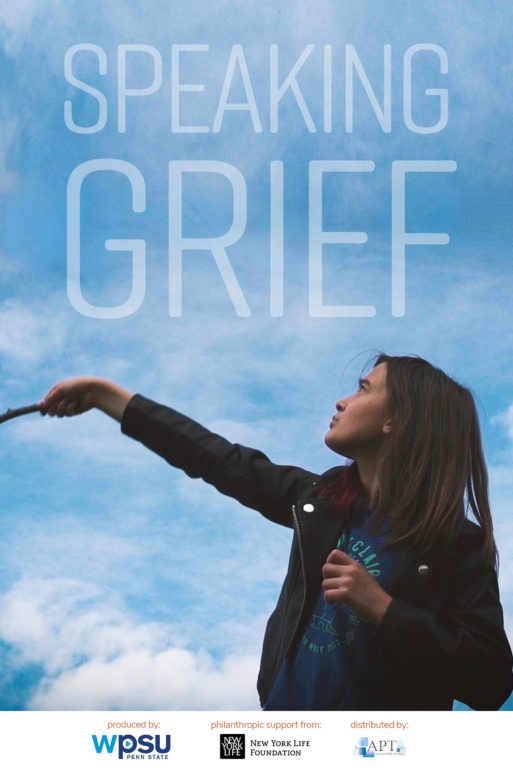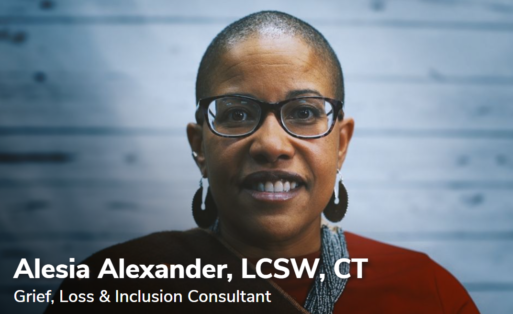 “Speaking Grief,” a 2020 documentary produced by WPSU Penn State, gets real about the process of loss and grieving. True to its title, the film addresses the emotions that occur following loss as more of a language to learn than a one-size-fits-all experience.
“Speaking Grief,” a 2020 documentary produced by WPSU Penn State, gets real about the process of loss and grieving. True to its title, the film addresses the emotions that occur following loss as more of a language to learn than a one-size-fits-all experience.
A Mix of Information and Relatability
While it’s easy to find firsthand accounts of what the grieving process is like on YouTube, looking at a single person’s perspective gives a fragmented view of what grief is really like. “Speaking Grief ” took that into account, featuring interviews with 19 different individuals and families. Each family was unique, and so were their losses.
There were daughters who had lost a mother in a car accident and wives who had lost a husband to cancer, but there were more confusing experiences as well.
Some families had lost a loved one to suicide or experienced pregnancy loss. This gave viewers so many more chances to discover someone else who has experienced grief in a similar way to themselves.
“Speaking Grief” Starts a New Conversation
Historically, grief has been a difficult topic to discuss. By offering viewers a sense of “it’s not just me,” the film lifts a weight from their shoulders. In addition to sharing the stories of people coping with a wide range of circumstances, it highlights the broad array of emotions experienced in the weeks, months, and years following a loss.
“Grief is not an illness or a mental health problem. Grief is a natural part of life.” – Julie Kaplow
More importantly, it validates them all. In the movie, a panel of experts collaborate to explain why each family experienced grief in the way they did.

Alesia Alexander is one of several experts on grief and loss who offer insight during the film “Speaking Grief.”
Throughout the film, they help the subjects (and the audience) understand and process the complicated but normal emotions following loss. The panel includes the following six experts:
Alesia ALexander, LCSW, CT — A grief, loss and inclusion consultant
Cristina Chipriano, LCSW-S — The director of Spanish Programs and Outreach at Bo’s Place, a bereavement center in Houston, Texas
Megan Devine, LPC — A psychotherapist, speaker, grief advocate, and author
Julie Kaplow, Ph.D. — The executive director of a trauma and grief center
Joyal Mulheron — The founder and executive director of Evermore, a bereavement care center inspired by the loss of her daughter
Ted Rynearson, M.D. — A clinical professor of psychiatry, consultant, and author
Their varied expertise and experience prove helpful in pairing individuals with accurate explanations and guidance. They also address the challenges that come along with death. In addition to addressing painful, potentially life-disrupting emotions, they weigh in on how death can cause a snowball of challenges. The loss of a spouse’s income can force a former stay-at-home parent into full-time work, leaving children to miss not one, but two parents. Years spent caring for a sick relative can take a massive toll on family members on all fronts.
Acknowledging that the pain of grief can penetrate every facet of life was a good choice. In doing so, the documentary offered peace of mind both to those who feel overwhelmed by post-loss life changes and those who feel too busy to grieve at all.
Normalizing and Understanding All Forms of Grief
The best part about “Speaking Grief” is that it covers the experiences of so many people who are nothing alike. It shows us every conceivable experience and emotion, including those of parents and young children. Throughout the documentary, there’s an underlying message of embracing grief, regardless of how you experience it.
Whether you need to process and accept your own feelings following a loss or to better understand the feelings of a loved one, “Speaking Grief” is a wonderful resource. If you would like to see it in its entirety, you can stream it free here.

 “Speaking Grief,” Directed by Lindsey Whissel Fenton
“Speaking Grief,” Directed by Lindsey Whissel Fenton


 How Dare You Die Now!
How Dare You Die Now!
 Debating Medical Aid in Dying
Debating Medical Aid in Dying
 “Help Me, Helen”
“Help Me, Helen”














